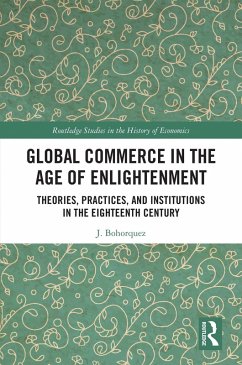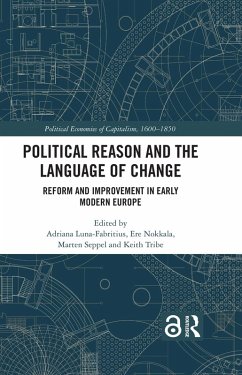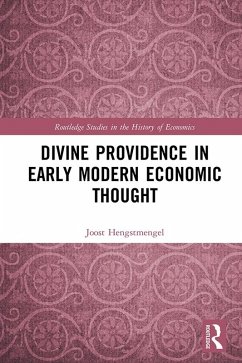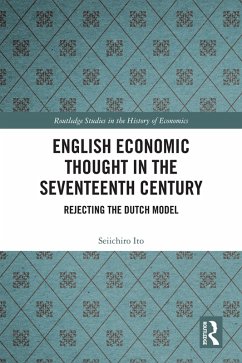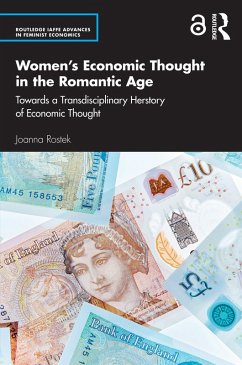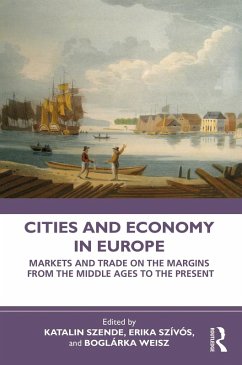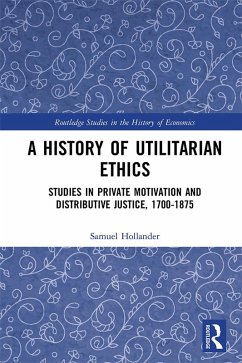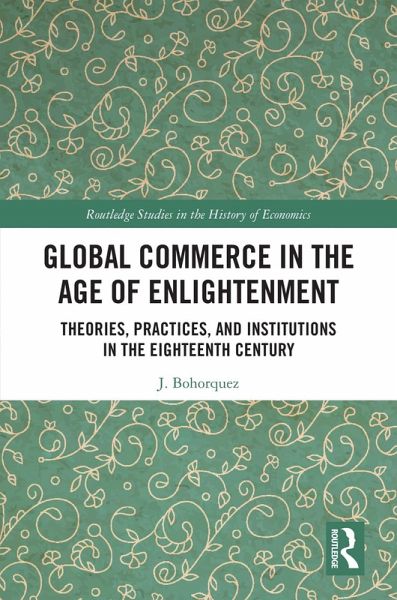
Global Commerce in the Age of Enlightenment (eBook, PDF)
Theories, Practices, and Institutions in the Eighteenth Century
Versandkostenfrei!
Sofort per Download lieferbar
39,95 €
inkl. MwSt.
Weitere Ausgaben:

PAYBACK Punkte
20 °P sammeln!
Combining contextual, institutional, and global perspectives, this book evaluates the impact of international trade on eighteenth-century economic thought. It meticulously delineates how economic ideas and institutions flowed between North and South Europe and across the Indian and Atlantic Oceans during the Age of Enlightenment.Global Commerce in the Age of Enlightenment carefully explores contemporary debates about economic institutions, which were a crucial element in the race for controlling international trade. Eighteenth-century thinkers devoted much attention to the relative merits of e...
Combining contextual, institutional, and global perspectives, this book evaluates the impact of international trade on eighteenth-century economic thought. It meticulously delineates how economic ideas and institutions flowed between North and South Europe and across the Indian and Atlantic Oceans during the Age of Enlightenment.
Global Commerce in the Age of Enlightenment carefully explores contemporary debates about economic institutions, which were a crucial element in the race for controlling international trade. Eighteenth-century thinkers devoted much attention to the relative merits of existing institutions, such as free ports, grasped the dangers of economic dependence, and appraised emerging conceptions of property rights. The author draws on an impressive range of sources, including pamphlets and travel accounts, and work from lesser-known figures such as Pierre Poivre and Ange Goudar.
This volume will be valuable reading for advanced students and researchers of the history of economic thought, economic history, political economy, the history of ideas, and global history.
Global Commerce in the Age of Enlightenment carefully explores contemporary debates about economic institutions, which were a crucial element in the race for controlling international trade. Eighteenth-century thinkers devoted much attention to the relative merits of existing institutions, such as free ports, grasped the dangers of economic dependence, and appraised emerging conceptions of property rights. The author draws on an impressive range of sources, including pamphlets and travel accounts, and work from lesser-known figures such as Pierre Poivre and Ange Goudar.
This volume will be valuable reading for advanced students and researchers of the history of economic thought, economic history, political economy, the history of ideas, and global history.
Dieser Download kann aus rechtlichen Gründen nur mit Rechnungsadresse in A, B, BG, CY, CZ, D, DK, EW, E, FIN, F, GR, HR, H, IRL, I, LT, L, LR, M, NL, PL, P, R, S, SLO, SK ausgeliefert werden.




